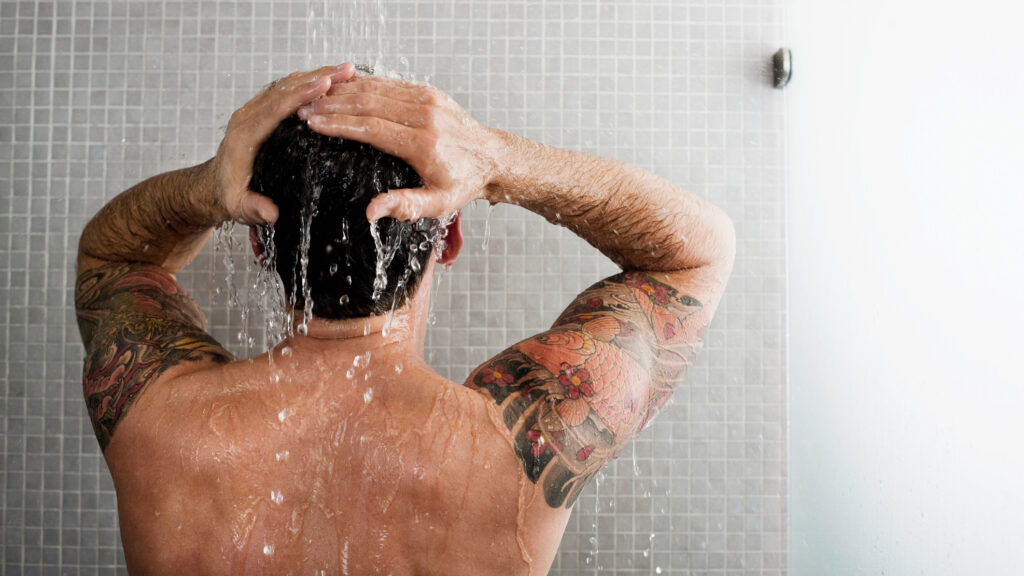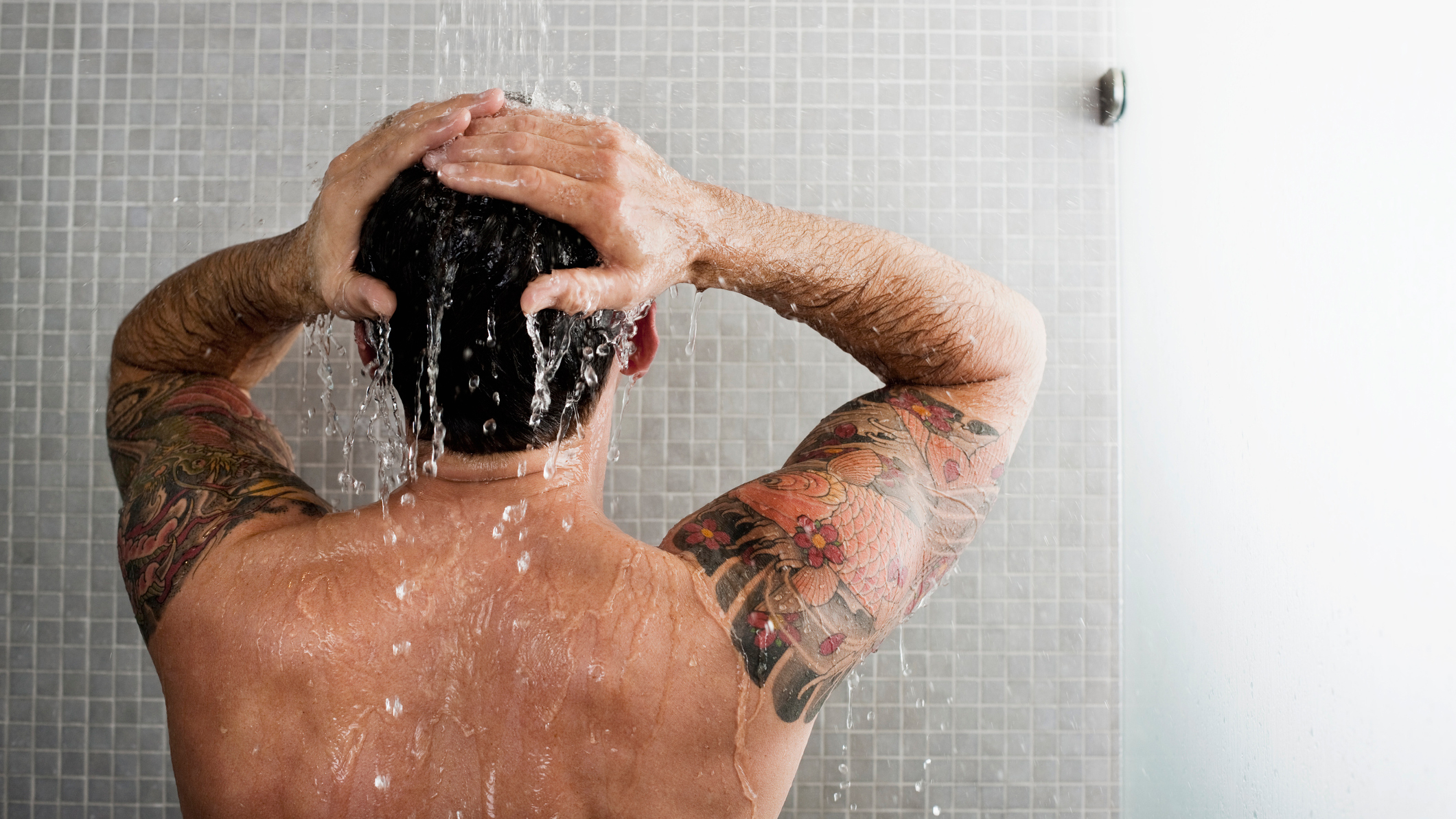Challenges of dealing with a 13-year-old who takes excessively long showers. Learn practical tips and strategies to address this issue effectively.

Introduction
As a parent, I never thought I would encounter such a peculiar problem until my 13-year-old son’s hour-long showers became a daily routine. Not only did this concern me for ecological reasons, but it also raised questions about his time management skills and self-awareness. In this blog post, I will share my experiences and provide helpful insights on dealing with this water-wasting habit.
In today’s fast-paced world, it’s not uncommon for parents to worry about their children’s habits and behaviors. One concern that many parents face is their children spending excessive time in the shower. If you’re a parent dealing with a similar situation, you’re not alone. In this article, we will explore the reasons behind this behavior, its potential impact, and offer some practical solutions to help you address the issue. So, let’s dive in!
Understanding the Issue
While personal hygiene is essential, it’s crucial to maintain a balance and use resources responsibly. Hour-long showers can have detrimental effects on both the environment and household bills. It’s necessary to explore the underlying reasons behind this behavior to address it effectively. Here are a few possible explanations:
- Escape and Relaxation: Showers often provide an escape from daily stressors, offering a tranquil environment for contemplation and relaxation.
- Unawareness of Consequences: Adolescents may not fully grasp the environmental and financial implications of excessive water usage.
- Experimenting with Independence: As teenagers strive for independence, they may seek control over personal routines, such as showering.
Practical Solutions and Strategies
- Open Communication: Initiate a calm and open conversation with your child about their showering habits. Explain the concerns regarding water conservation and the impact it has on both the environment and the household.
- Establish Time Limits: Set reasonable time limits for showers, ensuring that your child has enough time for personal hygiene while avoiding excessive usage.
- Encourage Accountability: Teach your child to be responsible for their actions by involving them in monitoring water bills and discussing the financial implications of their showering habits.
- Promote Time Management: Help your child develop better time management skills by suggesting alternative ways to relax and destress, such as reading, listening to music, or engaging in hobbies.
The Impact of Prolonged Showers on Water Consumption
As parents, it’s not uncommon to encounter certain habits in our children that leave us scratching our heads in wonder. One such behavior that may perplex some parents is the tendency of their 13-year-old son to take hour-long showers. While it’s important to respect individual preferences and personal hygiene, it’s also crucial to consider the environmental and financial implications of prolonged showers. In this article, we delve into the topic to provide insights and suggestions for parents seeking to address this issue.
Excessive water consumption is a primary concern when it comes to hour-long showers. On average, a standard showerhead releases about 2.5 gallons of water per minute. Therefore, an hour-long shower amounts to a staggering 150 gallons of water. Not only does this excessive use strain natural resources, but it also leads to higher water bills for households. Understanding the impact of these marathon showers can help parents find effective ways to address the situation.
Exploring the Reasons Behind Prolonged Showers
To tackle the issue, it’s essential to understand the underlying reasons for your son’s extended showers. Adolescence is a time of self-discovery and experimentation, and this includes developing personal hygiene routines. Your son may be using showers as a means of privacy or relaxation, finding solace in the warm water and peaceful ambiance. Additionally, some teenagers may spend extended periods in the shower due to body image concerns or as an escape from daily stresses.
Encouraging Water-Efficient Habits
While it’s important to empathize with your son’s need for personal space and relaxation, it’s equally crucial to foster environmentally responsible habits. Here are some strategies to address the situation:
- Open Communication: Initiate an open and non-judgmental conversation with your son to express your concerns regarding excessive water consumption. Encourage him to share his thoughts and feelings about the long showers and try to find a common ground.
- Education on Conservation: Teach your son about the environmental impact of excessive water usage. Discuss the importance of preserving natural resources and how small changes in behavior can make a significant difference. Highlight the positive impact of shorter showers on both the environment and the family’s budget.
- Set Time Limits: Establish reasonable time limits for showers and convey them to your son. Explain the importance of adhering to these limits and encourage him to manage his time effectively while maintaining good personal hygiene.
- Introduce Water-Saving Devices: Consider installing water-efficient showerheads or aerators. These devices restrict water flow while still providing a satisfactory shower experience. They can significantly reduce water consumption without compromising comfort.
- Encourage Alternatives: Suggest alternative activities that provide relaxation and privacy, such as reading a book, listening to music, or engaging in hobbies. Help your son explore different outlets for self-care that don’t rely solely on hour-long showers.
- Lead by Example: Display water-efficient habits yourself to demonstrate the importance of conservation. When children witness their parents actively practicing environmentally friendly behaviors, they are more likely to adopt them as well.
Seeking Professional Guidance
If your efforts to address the situation prove challenging or ineffective, it might be worth consulting a professional. A family therapist or counselor experienced in working with adolescents can provide valuable insights and guidance. They can help explore the underlying reasons behind your son’s prolonged showers and offer strategies for fostering healthy habits.
Remember, patience and understanding are key when addressing any behavioral concerns with your child. By taking proactive steps to encourage water-efficient habits, you not only contribute to environmental sustainability but also help your son develop responsible behavior that will serve him well throughout his life.
Understanding the Behavior
The Fascination with Showers
Adolescence is a period of self-discovery and exploration. As children grow older, their bodies and minds go through various changes, and they start developing a sense of independence. Showers can provide a sense of privacy, relaxation, and solitude, allowing teenagers to unwind and reflect upon their day. It’s crucial to acknowledge that spending time in the shower might be a coping mechanism or an escape from the pressures of school and social life.
The Impact of Hormonal Changes
During puberty, hormonal changes occur in a teenager’s body, which can have a profound effect on their emotions and behavior. These hormonal fluctuations may lead to increased sensitivity, mood swings, and a need for personal space. Taking long showers may serve as a way for adolescents to find solace and temporary relief from the emotional rollercoaster they experience.
The Potential Concerns
While spending an hour in the shower might seem harmless initially, it’s essential to address any potential concerns associated with this behavior.
Water Consumption and Environmental Impact
Extended shower sessions can lead to excessive water consumption, resulting in wastage and a strain on natural resources. It’s crucial to educate our children about the importance of water conservation and the impact their actions can have on the environment. Encouraging shorter showers can help reduce water usage and promote eco-friendly habits.
Time Management and Productivity
Long showers can disrupt daily routines and hinder productivity, especially when teenagers have other responsibilities, such as homework or extracurricular activities. By spending excessive time in the shower, they may be neglecting other essential tasks. Finding a balance between personal time and responsibilities is crucial for their overall development.
Teach your child effective time management skills. Help them create schedules or to-do lists that prioritize essential tasks and allocate sufficient time for personal activities. By instilling these skills early on, you empower them to make informed choices and balance their responsibilities effectively.
Practical Solutions
Addressing the issue of hour-long showers requires a thoughtful approach that promotes understanding, open communication, and healthy habits. Here are some practical solutions to consider:
Establish Open Communication
Initiate an open and non-judgmental conversation with your child to understand their perspective. Allow them to express their feelings and concerns while sharing your own worries. This dialogue will foster trust and enable both parties to work together towards a solution.
Set Clear Boundaries
Establishing boundaries is essential to promote responsible behavior. Discuss and agree upon a reasonable shower duration that suits both your child’s need for personal time and your concerns about excessive water usage. Ensure they understand the importance of respecting these boundaries.
Explore Alternative Outlets
Encourage your child to explore alternative outlets for self-expression and relaxation. Engaging in hobbies, physical activities, or creative pursuits can provide a healthy escape and help them manage stress without relying solely on long showers.
Lead by Example
As a parent, it’s crucial to lead by example. Show your child the importance of sustainable living and responsible water usage through your own actions. By practicing what you preach, you inspire them to follow suit and adopt eco-conscious habits.
Frequently Asked Questions
Q1: Should I restrict my child’s shower time to just a few minutes?
A1: While it’s essential to set reasonable time limits, a few minutes might be too restrictive. Aim for a balanced approach, allowing enough time for personal hygiene while emphasizing the importance of water conservation.
Q2: What if my child refuses to change their showering habits?
A2: If your child is resistant to change, try to understand their perspective and address any underlying concerns. Seek compromises that both parties can agree upon, such as gradually reducing shower time or exploring alternative relaxation methods.
Q3: How can I strike a balance between respecting his privacy and addressing the issue?
A3: Respect your son’s need for privacy while also promoting responsible behavior. Schedule regular family discussions about water conservation and encourage open conversations about personal hygiene. It’s essential to strike a balance between understanding his desire for autonomy and addressing any potential concerns.
Q4: Should I impose strict time limits on showering?
A4: While it’s crucial to set boundaries, imposing overly strict time limits may create unnecessary tension. Instead, work together with your son to establish reasonable shower durations that consider both his preferences and the importance of conserving resources.
Q5: Are there any potential health risks associated with prolonged showers?
A5: Generally, hour-long showers don’t pose significant health risks. However, excessive exposure to hot water can lead to dry skin and potential irritation. Encourage your son to use lukewarm water and apply moisturizer after showering to maintain healthy skin.
Q6: How can I encourage my son to take shorter showers?
A6: Openly communicate with your son about the importance of conserving water and the impact it has on the environment. Set clear expectations and establish time limits for showering. Encourage him to think about other activities he enjoys and help him manage his time effectively.
Q7: Could excessive showering be a sign of a larger issue?
A7: While prolonged showers are generally harmless, they can occasionally be a sign of underlying concerns such as anxiety or obsessive-compulsive tendencies. If you notice excessive hygiene rituals or significant disruptions to daily routines, it’s advisable to consult with a healthcare professional.
Q7: How can I ensure my son is practicing good hygiene during these long showers?
A7: Reinforce the importance of thorough hygiene practices, such as proper washing of the body, hair, and face. Educate him about the benefits of using appropriate products and techniques. You can also provide gentle reminders to ensure he maintains good hygiene habits.
Conclusion
Dealing with a 13-year-old who takes hour-long showers can be challenging, but it’s essential to approach the issue with understanding and effective communication. By promoting awareness, accountability, and responsible resource usage, you can help your child develop better habits while minimizing the environmental impact. Remember, patience and consistency are key when implementing changes, and it’s crucial to maintain a positive and supportive environment throughout the process.
Parenting is a journey filled with challenges, and addressing concerns about hour-long showers is just one of many obstacles you may face. By understanding the underlying reasons behind this behavior, addressing potential concerns, and implementing practical solutions, you can guide your child towards a healthier balance between personal time and responsibilities. Remember, open communication, empathy, and leading by example are key to nurturing a positive change. Together, we can help our children develop into responsible and well-rounded individuals.
-

Top 7 Reasons Russian Girls Move to Dubai in 2026 – Russian Expats, Lifestyle & Career Guide
-

Pictory.ai Script to Video
-

Ostagram: Guide for Stunning Photo Effects
-

Gaslighting Ai full Guide: How Human Perception Interacts with Artificial Intelligence

